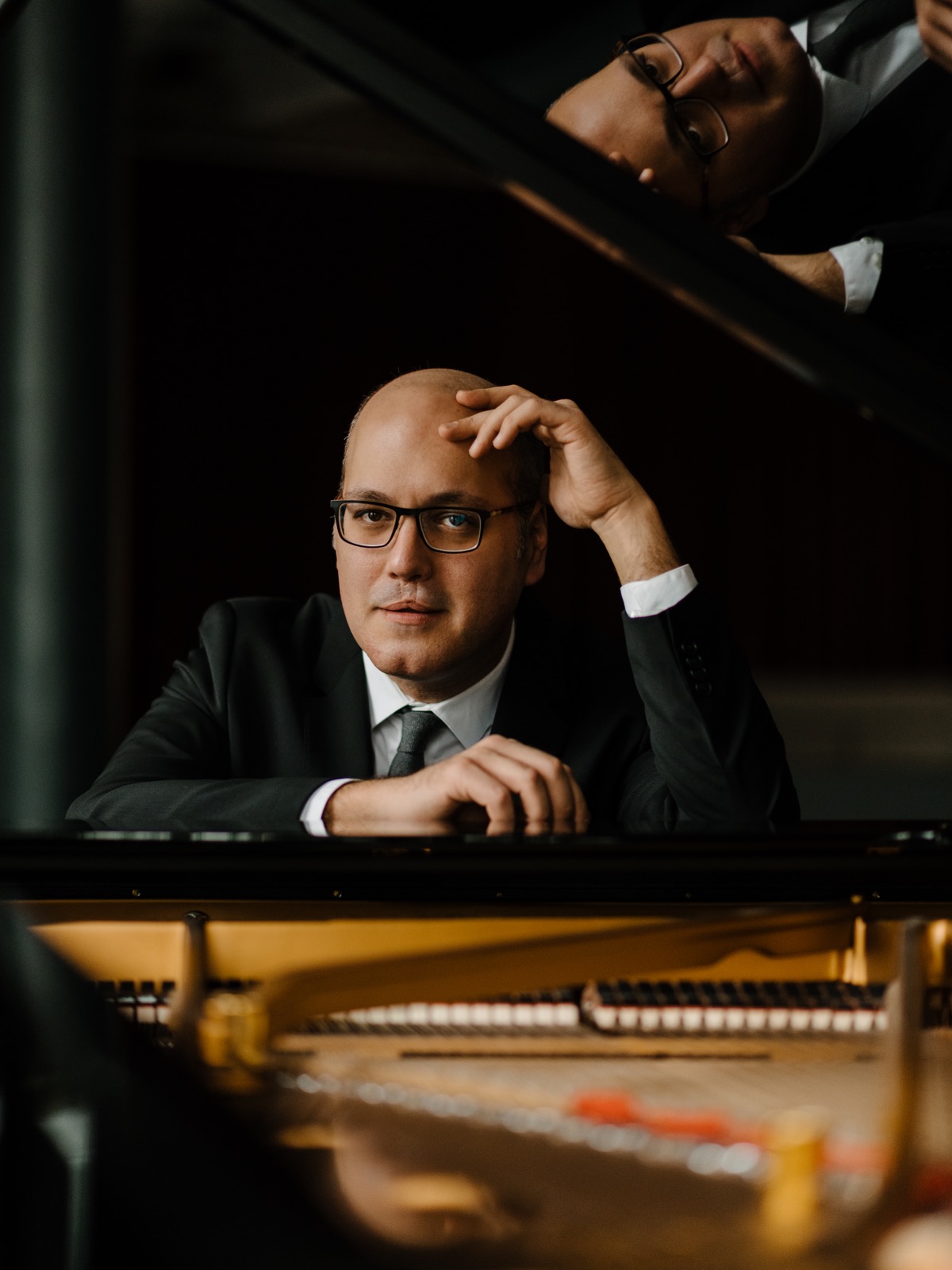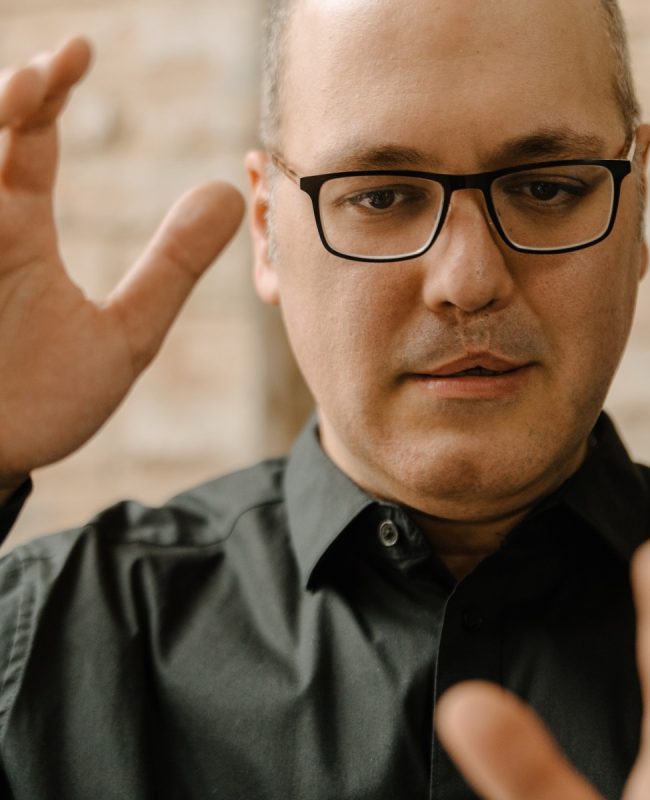Markéta Cukrová
& Gottlieb Wallisch
Programme
- Antonín Dvořák: Songs Op. 2
- Václav Jan Tomášek: Eclogues Op. 35, No. 1, 2, 6
- César Franck: Songs Aimer, L'émir de Bengador, Passez, passez toujours, Lied, Ninon, Le mariage des roses, Nocturne
- César Franck: Prélude, Fugue et Variation Op. 18 (arr. H. Bauer)
- Hector Berlioz: Les Nuits d´été Op. 7
Performers
- Markéta Cukrová - mezzo-soprano
- Gottlieb Wallisch - pianoforte
Markéta Cukrová and Gottlieb Wallisch at Paul McNulty workshop
There was probably a piano in the middle of the parlour
A colourful and possibly unexpected combination of Czech and French compositions that one might have heard in a salon in the mid-19th century will be featured on a recital of two artists who share—besides great flexibility of repertoire—a clear inclination towards historically informed interpretation. “I tried to imagine what a salon in the home of a wealthy Prague family would be like, perhaps in a flat on Charles Square or in Prague’s Lesser Town in the mid-19th century. There was probably a piano in the middle of the parlour. It might have been a Bösendorfer, like Dvořák’s, or an older instrument. Why not a Romantic-era fortepiano with its poetic sound that perfectly suits the intimate setting and ideally blends with the human voice?”, asks mezzo-soprano Markéta Cukrová. In this salon from the middle of the century, there is an encounter between the songs and piano music of the Czech composer Antonín Dvořák and his predecessor, Prague’s most influential figure of the first half of the 19th century Václav Jan Tomášek, and their French colleagues Hector Berlioz and César Franck. “Berlioz actually met Tomášek while visiting Prague,” says Prague Spring Festival programming director Josef Třeštík. “And in 2022, exactly 200 years will have passed since Franck’s birth, so his music will be heard on a number of programmes throughout the festival”, he adds.

Colourful sound, lyricism, and emotionality
Representing Dvořák’s music on the programme will be his Songs Op. 2, a revision of the cycle Cypresses, and from Tomášek there will be selections from his Eclogues for piano, in which the composer fully embraced the spirit of Romanticism. We will also hear Les nuits d’été by Hector Berlioz with piano accompaniment. The French composer wrote the songs to texts by his friend Théophile Gautier, a Parisian bohemian poet. Today, Les nuits d’été are known in the composer’s orchestration, which came long in advance of other orchestral song cycles such as those of Gustav Mahler or Maurice Ravel. Concluding the programme is the Prélude, fugue et variation Op. 18, which César Franck originally wrote for organ.“We know that Dvořák himself was playing in Prague salons in the middle of the century and that new works by contemporary composers from around the world were circulating there,” says Ms Cukrová about the concept of the programme. “I am truly pleased that for the very first time Dvořák’s songs will be heard in Prague in a possibly surprising combination with a fortepiano and together with Les nuits d’été by Berlioz and rarely heard songs by César Franck. The aesthetics of these three Romantic composers have much in common. As amazed as we are by the monumentality of the oratorios and symphonies of Late Romanticism, it is good to remember the tender beginnings of that epoch and the colourful sound, lyricism, and emotionality of chamber works.”


A prominent figure
The mezzo-soprano Markéta Cukrová is a prominent figure on the Czech music scene. Se is able to captivate listeners with her performances of music that is often unfamiliar, but she can also give riveting talks about singing, think in broad contexts, and pass on her experiences. For this reason, she is a sought-after teacher, especially at summer courses, and also a dramaturge and occasionally a journalist as well. Her Czech translation of the book True Singing by the renowned vocal pedagogue Margreet Honig was published recently. She manages to do all of this alongside her busy career as a concert and operatic artist.

Amazing nuance and depth
Her chamber music partner on the fortepiano is Gottlieb Wallisch. He comes from a Viennese musical family. As a prodigy, he was admitted to a college of music even before he reached the age of seven. At 12 years of age he made his debut at the Golden Hall of the Musikverein playing Beethoven’s Emperor Concerto under the baton of Yehudi Menuhin.






